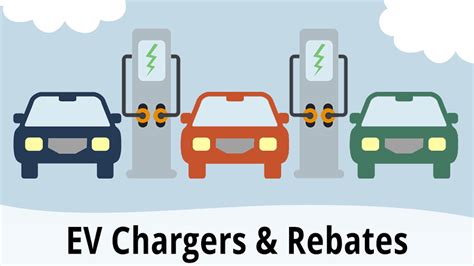As electric vehicles (EVs) surge in popularity, governments and utility companies are stepping up to support the transition to a cleaner transportation future. One of the most impactful ways they are doing this is through EV car charger rebates. If you’re considering installing a home EV charger, understanding these rebates can significantly lower your upfront costs and enhance your overall savings. This guide aims to demystify EV car charger rebates, providing you with the information you need to make the most of available opportunities.
What are EV Charger Rebates?
EV charger rebates are financial incentives provided by governmental agencies, electric utilities, and non-profit organizations to encourage the adoption of electric vehicles by subsidizing the cost of EV charging infrastructure. These rebates can significantly reduce the initial investment needed for purchasing and installing a home charging station.
Types of EV Charger Rebates
There are generally two types of rebates available for EV car chargers:
- State and Local Rebates: Many states offer their own rebate programs, which can vary significantly. These may include direct cash-back offers or tax credits.
- Utility Company Incentives: Some utility companies provide rebates to customers who install EV chargers. These incentives may differ by region and are often designed to manage energy demand, especially during peak usage times.
Benefits of Installing an EV Charger at Home
Beyond the immediate financial savings from rebates, there are numerous advantages to installing a home EV charger:
- Convenience: Charging your EV at home means you can start each day with a full battery, free from the need to visit public charging stations.
- Increased Property Value: Homes equipped with EV chargers can attract environmentally conscious buyers, potentially increasing property value.
- Long-Term Cost Savings: Charging an EV at home is generally cheaper than refueling a gasoline vehicle, especially with the rising costs of fossil fuels.
How to Find EV Charger Rebates
Finding EV charger rebates can involve some research. Here are steps to guide you:
- Check State Energy Offices: Visit your state’s energy office website for information on available rebates and incentives.
- Utility Company Programs: Contact your utility provider to ask about specific programs that offer rebates for EV chargers.
- Use Online Resources: Websites like Electric Vehicle Charging Association, FuelEconomy.gov, and DSIRE USA compile information on rebates and incentives nationwide.
Application Process for Rebates
Once you’ve identified the rebates you qualify for, follow these steps for a smooth application process:
- Review Eligibility Criteria: Make sure you meet all conditions set by the rebate program.
- Gather Documentation: You’ll often need proof of purchase, installation receipts, and sometimes a signed affidavit verifying your installation.
- Submit Application: Follow the specific submission guidelines set by the rebate program, which could include online forms or mail-in applications.
- Track Your Application: After submission, keep a record of your application and follow up if necessary.
Common Myths About EV Charger Rebates
As with any emerging technology, misinformation can abound. Here are a few common myths associated with EV charger rebates:
- Myth 1: All EV chargers are eligible for rebates – This is false. Eligibility often depends on the specific model and installation requirements.
- Myth 2: Rebates are only available for new EV buyers – Many programs are open to anyone who installs a qualified charging station, regardless of when they bought their EV.
- Myth 3: Applying for rebates is too complicated – While it can require attention to detail, many programs have streamlined processes and clear guidelines.
Conclusion
Investing in an electric vehicle charger at home can be significantly more affordable when taking advantage of available rebates. Understanding what these rebates entail, how to find them, and how to apply can help you unlock substantial savings. The transition to electric vehicles isn’t just beneficial for the environment; it can also lead to significant cost reductions for consumers. So, whether you’re a new EV owner or are considering a switch to electric, take the time to explore these rebates and leverage them to enhance your EV experience.
FAQs
What types of EV chargers qualify for rebates?
Typically, Level 2 chargers qualify for rebates. However, it’s essential to check local guidelines, as requirements may vary.
How much can I expect to save with EV charger rebates?
Savings can range from a few hundred to several thousand dollars, depending on the state and specific program. Always review the current offerings in your area.
Are there tax credits available for EV chargers?
Yes, federal tax credits are available for home EV charger installations, along with potential state tax credits. Consulting a tax professional can help clarify your benefits.
Do I need to be a homeowner to apply for these rebates?
Not necessarily. Renters can qualify for rebates if they have the landlord’s permission to install a charger, though availability may differ by program.
Can I combine different rebates from various programs?
In many cases, you can combine rebates, but you should confirm this with the specific programs to ensure you meet their requirements.
Download Ev Car Charger Rebate
